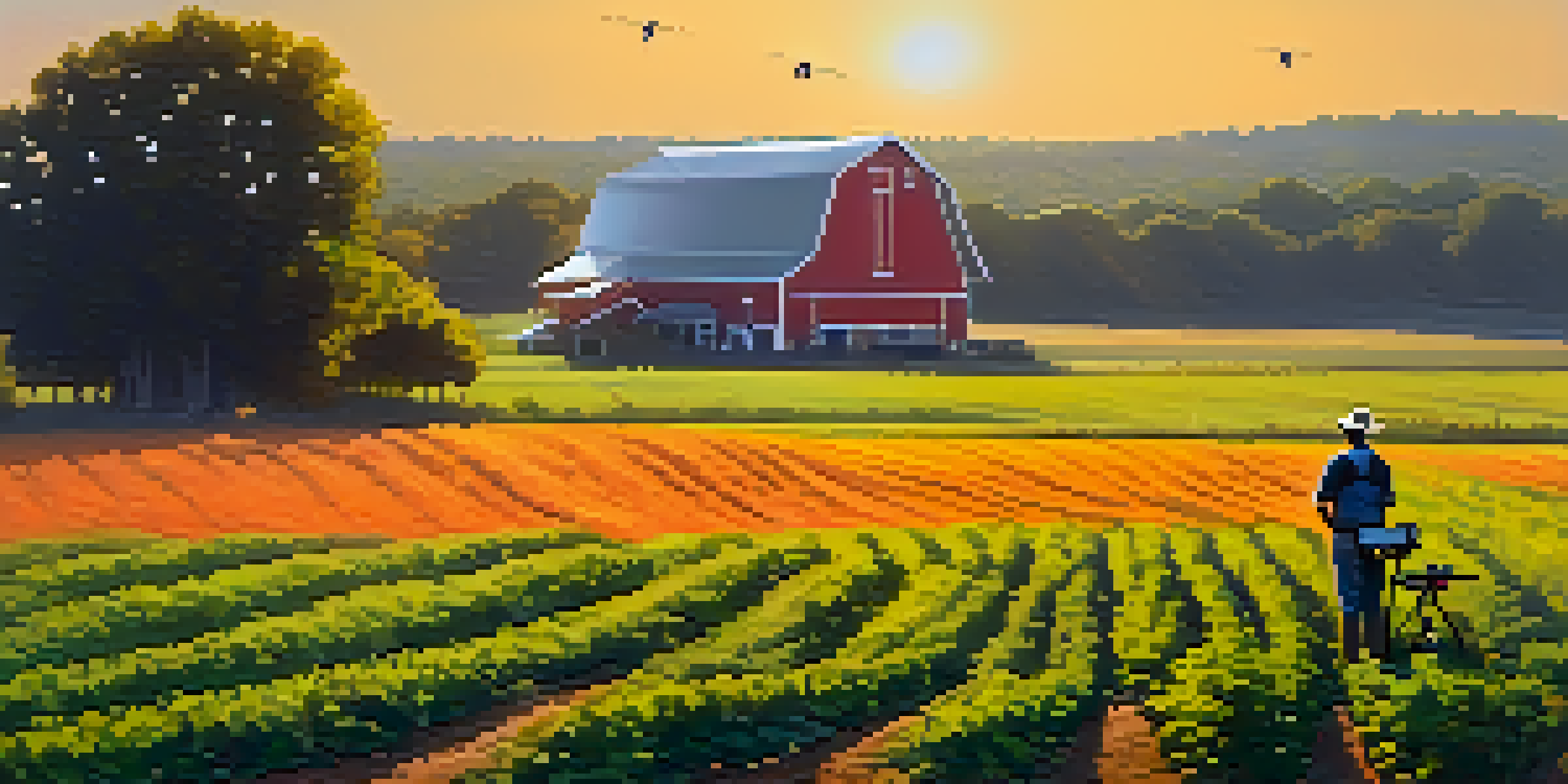The Role of Technology in Modern NC Farming Practices

Introduction to Technology in North Carolina Farming
Farming in North Carolina has evolved dramatically over the years, particularly with the rise of technology. In the past, farmers relied heavily on traditional methods, which often limited efficiency and productivity. Today, a variety of technological advancements are reshaping the agricultural landscape, making it vital for farmers to adapt. This article delves into how technology is not just a tool but a game-changer for modern farming practices in NC.
Precision Agriculture: The New Farming Frontier
Precision agriculture refers to the use of technology to monitor and manage field variability in crops. Farmers in North Carolina are increasingly turning to GPS and satellite imagery to analyze soil health, moisture levels, and crop yields. This data-driven approach allows them to apply water, fertilizers, and pesticides more efficiently, minimizing waste and maximizing outputs. By embracing precision agriculture, NC farmers are enhancing productivity while also promoting sustainability.
Tech Revolutionizes NC Farming
Innovative technologies are transforming traditional farming practices in North Carolina, enhancing efficiency and productivity.
Drones: A Bird's Eye View of Crop Management
Drones have emerged as a revolutionary tool in modern farming, offering a unique aerial perspective for crop monitoring. In North Carolina, farmers utilize drones for everything from surveying fields to assessing crop health. This technology allows for quick identification of issues like pest infestations or water stress, enabling timely interventions. The ability to gather real-time data helps farmers make informed decisions, ultimately leading to healthier crops and improved yields.
Smart Irrigation Systems: Water Management Made Easy
Water management is crucial for farming in NC, especially given the variable climate. Smart irrigation systems use sensors to monitor soil moisture and weather conditions, adjusting water usage accordingly. This technology not only conserves water but also ensures that crops receive the optimal amount they need to thrive. By implementing smart irrigation, farmers can significantly reduce their water bills while enhancing crop health and productivity.
Precision Agriculture Boosts Yields
Farmers in NC are utilizing precision agriculture techniques, such as GPS and data analytics, to optimize resource use and increase crop yields.
Automated Machinery: Efficiency in the Field
The introduction of automated machinery has transformed the way farming is done. Tractors and harvesters equipped with advanced tech can perform tasks with minimal human intervention, saving time and labor costs. In North Carolina, farmers are increasingly using these machines for planting and harvesting, allowing them to cover more ground in less time. This shift not only boosts efficiency but also helps mitigate labor shortages that many agricultural sectors are facing.
Data Analytics: Making Informed Farming Decisions
Data analytics plays a crucial role in modern farming, allowing farmers to harness large volumes of data for better decision-making. In NC, farmers are using software to analyze everything from weather patterns to market trends. This insight can guide planting schedules, crop selection, and even pricing strategies. By leveraging data analytics, farmers can enhance their competitiveness and ensure sustainable practices.
Sustainability Through Smart Practices
Technological advancements are enabling North Carolina farmers to implement sustainable practices that improve soil health and profitability.
Sustainable Practices Enhanced by Technology
Sustainability is increasingly important in agriculture, and technology is playing a pivotal role in achieving it. North Carolina farmers are adopting practices like cover cropping and no-till farming, often supported by technological tools that optimize these methods. For instance, soil sensors can monitor nutrient levels, allowing farmers to make data-driven decisions that promote soil health. This integration of technology not only benefits the environment but also improves long-term profitability.
The Future of Farming in North Carolina
As technology continues to advance, the future of farming in North Carolina looks promising. Innovations such as artificial intelligence and blockchain are beginning to find their way into the agricultural sector. These technologies have the potential to further streamline processes, enhance traceability, and improve supply chain efficiencies. For farmers willing to embrace change, the possibilities are endless, paving the way for a more productive and sustainable agricultural future.